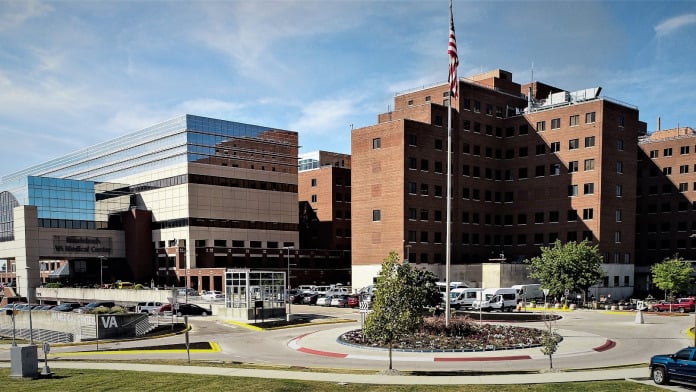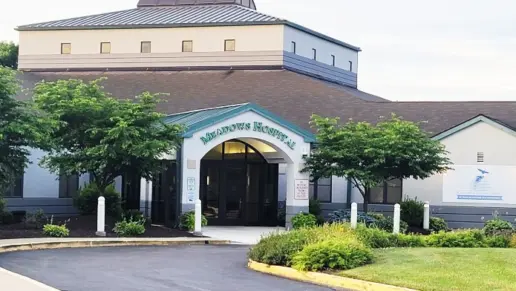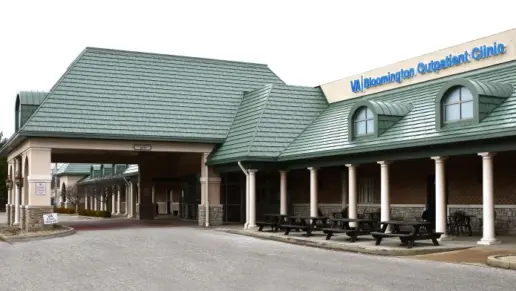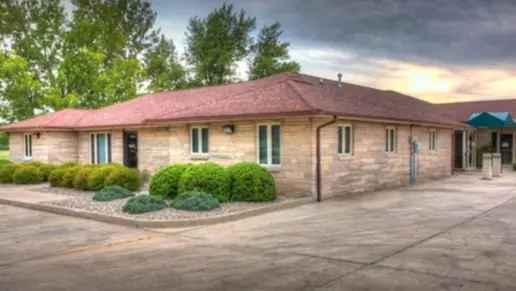I would rather pay out of my own pocket if that ensures adequate medical care! They never leave a voicemail because "they forget to do so" As veterans we deserve better, this place refuses to treat patients in a dignified way
About Richard L. Roudebush VA Medical Center
Richard L. Roudebush VA Medical Center is located in Indianapolis, Indiana. Richard L. Roudebush VA Medical Center provides acute inpatient medical, surgical, psychiatric, neurological, and rehabilitation care, as well as both primary and specialized outpatient services.
The Indianapolis VAMC strives to improve the health of the men and women who have so proudly served our nation. They consider it their privilege to serve your health care needs. They provide specialized care and receive referrals from all over Indiana and Central Illinois.
The Family Support Center helps renew, restore and reconnect the Veterans with their families by providing couples or family therapy services with ease of access to holistic care and family systems trained professionals. They offer family counseling, couple counseling, support for families of those Veterans returning from deployment, Warrior to Soulmate Workshops and weekend retreats, and clinical video telehealth.
Post Traumatic Stress (PTS) can develop after a person experiences or witnesses highly stressful and life threatening events. PTS symptoms include nightmares, flashbacks and irritability. Their PTS Programs are special programs for veterans who have developed PTS as a result of combat-related experiences or sexual abuse while in the military. Extensive treatment options include: specialized group therapy, specific medication treatments, stress reduction training, and family therapy.
Veterans, both women and men, have experienced sexual trauma while they served on active military duty. While some of these Veterans sought counseling and treatment for the aftereffects of the trauma, many have never discussed the incident or their medical or psychological condition with anyone. VA provides eligible Veterans with confidential counseling and treatment for the aftereffects of sexual trauma, helping them to better cope with the trauma experience, regain their confidence and self-esteem, and improve their quality of life.
VA’s specialized programs for homeless Veterans serve hundreds of thousands of homeless and at-risk Veterans each year. Independently and in collaboration with federal and community partners, VA programs provide Veterans with housing solutions, employment opportunities, health care, justice- and reentry-related services and more.
Latest Reviews
Rehab Score
Gallery

Location
Other Forms of Payment
Medicare is a federal program that provides health insurance for those 65 and older. It also serves people under 65 with chronic and disabling health challenges. To use Medicare for addiction treatment you need to find a program that accepts Medicare and is in network with your plan. Out of pocket costs and preauthorization requirements vary, so always check with your provider.
Medicaid is a state based program that helps lower-income individuals and families pay for healthcare. Medicaid covers addiction treatment so those enrolled can use their coverage to pay for rehab. When a program accepts Medicaid the client often pays very little or nothing out of their own pocket.
Private insurance refers to any kind of healthcare coverage that isn't from the state or federal government. This includes individual and family plans offered by an employer or purchased from the Insurance Marketplace. Every plan will have different requirements and out of pocket costs so be sure to get the full details before you start treatment.
Self-pay involves paying for treatment out of your own pocket. You can use savings or credit, get a personal loan, or receive help from family and friends to fund your treatment. If you don't have insurance or your insurance plan doesn't cover a specific program, self-pay can help ensure you still get the care you need.
Military members, veterans, and eligible dependents have access to specific insurance programs that help them get the care they need. TRICARE and VA insurance can help you access low cost or no cost addiction and mental health treatment. Programs that accept military insurance often have targeted treatment focused on the unique challenges military members, veterans, and their families face.
Addiction Treatments
Levels of Care
Treatments
The goal of treatment for alcoholism is abstinence. Those with poor social support, poor motivation, or psychiatric disorders tend to relapse within a few years of treatment. For these people, success is measured by longer periods of abstinence, reduced use of alcohol, better health, and improved social functioning. Recovery and Maintenance are usually based on 12 step programs and AA meetings.
For long-term recovery from drug addiction, drug rehab in Indiana is often key. This treatment gives individuals who are struggling with a substance use disorder the tools to manage their disorder and achieve long-term sobriety.
Many of those suffering from addiction also suffer from mental or emotional illnesses like schizophrenia, bipolar disorder, depression, or anxiety disorders. Rehab and other substance abuse facilities treating those with a dual diagnosis or co-occurring disorder administer psychiatric treatment to address the person's mental health issue in addition to drug and alcohol rehabilitation.
A combined mental health and substance abuse rehab has the staff and resources available to handle individuals with both mental health and substance abuse issues. It can be challenging to determine where a specific symptom stems from (a mental health issue or an issue related to substance abuse), so mental health and substance abuse professionals are helpful in detangling symptoms and keeping treatment on track.
Opioid rehabs specialize in supporting those recovering from opioid addiction. They treat those suffering from addiction to illegal opioids like heroin, as well as prescription drugs like oxycodone. These centers typically combine both physical as well as mental and emotional support to help stop addiction. Physical support often includes medical detox and subsequent medical support (including medication), and mental support includes in-depth therapy to address the underlying causes of addiction.
Programs



Clinical Services
Cognitive Behavioral Therapy (CBT) is a therapy modality that focuses on the relationship between one's thoughts, feelings, and behaviors. It is used to establish and allow for healthy responses to thoughts and feelings (instead of unhealthy responses, like using drugs or alcohol). CBT has been proven effective for recovering addicts of all kinds, and is used to strengthen a patient's own self-awareness and ability to self-regulate. CBT allows individuals to monitor their own emotional state, become more adept at communicating with others, and manage stress without needing to engage in substance abuse.
Sometimes, as part of a Veteran’s treatment, some members of the Veteran’s immediate family or the Veteran’s legal guardian may be included and receive services, such as family therapy, marriage counseling, grief counseling, etc. Family members might learn how to recognize symptoms and support recovery. In some treatment settings, a brief course of couples counseling or family therapy may be offered.
In individual therapy, a patient meets one-on-one with a trained psychologist or counselor. Therapy is a pivotal part of effective substance abuse treatment, as it often covers root causes of addiction, including challenges faced by the patient in their social, family, and work/school life.
Motivational Interviewing (MI) is a clinical approach to helping people with substance abuse issues and other conditions shift behavior in positive ways. It is more goal-oriented than traditional psychotherapy, as MI counselors directly attempt to get clients to consider making behavioral change (rather than wait for them to come to conclusions themselves). Its primary purpose is to resolve ambivalence and help clients become able to make healthy choices freely.
Group therapy is any therapeutic work that happens in a group (not one-on-one). There are a number of different group therapy modalities, including support groups, experiential therapy, psycho-education, and more. Group therapy involves treatment as well as processing interaction between group members.
Amenities
-
Residential Setting
-
Private Rooms
Accreditations

The Joint Commission, formerly known as JCAHO, is a nonprofit organization that accredits rehab organizations and programs. Founded in 1951, the Joint Commision's mission is to improve the quality of patient care and demonstrating the quality of patient care.
Joint Commission Accreditation: Yes
Accreditation Number: 2478

The Substance Abuse and Mental Health Services Administration (SAMHSA) is a branch of the U.S. Department of Health and Human Services. Established in 1992 by congress, SAMHSA's mission is to reduce the impact of substance abuse and mental illness on American's communities.
SAMHSA Listed: Yes
Contact Information
1481 West 10th Street
Indianapolis IN, 46202


